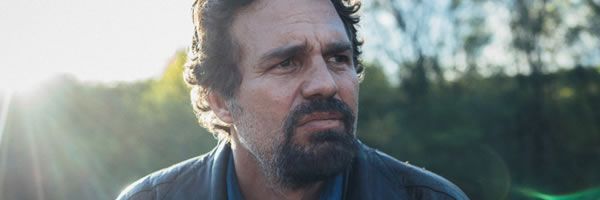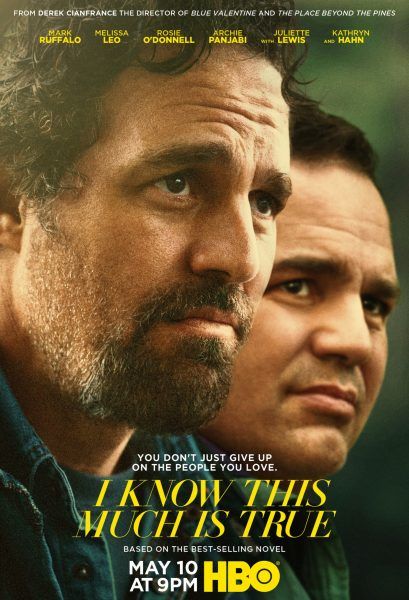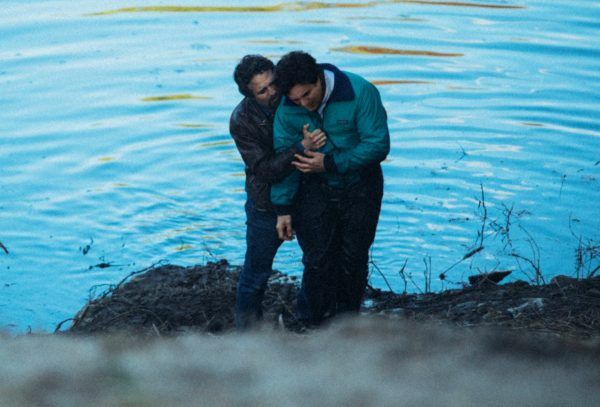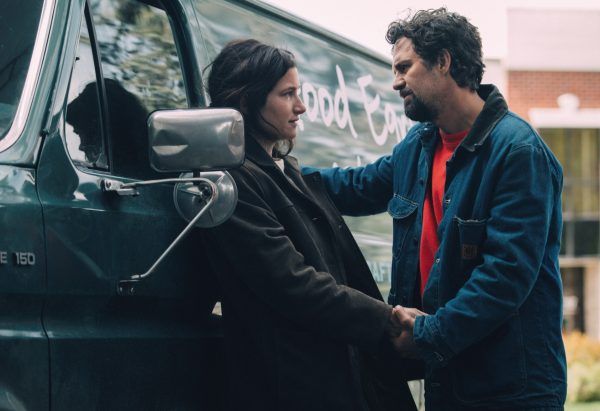From writer/director Derek Cianfrance and based on the award-winning novel of the same name by Wally Lamb, the six-part HBO limited series I Know This Much Is True follows identical twin brothers Dominick and Thomas Birdsey (played in two stand-out performances by Mark Ruffalo) on their very different life paths. It’s a family saga of sacrifice and forgiveness that begins in their present in the early 1990s and digs into different stages in their lives, as it highlights how mental illness affects everyone, including the one directly suffering with it.
During the virtual press day for the limited series, actor/executive producer Mark Ruffalo spoke to Collider for this 1-on-1 interview about initially being a little cavalier about the challenging of tackling two roles, the collaborative experience with filmmaker Derek Cianfrance, working with this incredible group of co-stars, why he was craving such a human story, how shooting on 35mm film affected the shoot, and what he’s learned from being a producer. He also talked about the projects that he’s currently developing, and what made him want to explore the history of the Source Family.
Collider: When you took this on, as an actor and producer, did you fully realize what you were getting yourself into? Obviously, you knew that there would be challenges, but did you fully grasp the challenges it would take to play these two guys?
MARK RUFFALO: No. I was a little cavalier about it. I was in my late 40s and I was in the middle of shooting two franchise films, and I was feeling pretty invincible. And then, I hit 50 and, of course, I lost all of my confidence. I was facing this huge challenge and thinking, how in the fuck am I gonna do this? I’d bit off way more than I could chew. I wanted to brace myself that this was just gonna be a frickin’ disaster.
Did you feel that way continuously, throughout the shoot, or once you got into it, was there no possible time to think about that anymore?
RUFFALO: Well, once I was in it, Derek [Cianfrance] just wouldn’t let it be anything but, if not good, then at least honest. And if not honest, then at least immediate, or honestly dishonest. If you’re really doing good work, at the end of the day, you have to throw the preparation away and just throw yourself into the void. That’s what this was all about, really. This was just showing up, every day, and knowing your lines, having done all of that, but at the end of the day, you throw that away and just jump in. That’s what Derek is a master at. He has no time for pretense or comfort. He wants discomfort and honesty, and you can’t prepare for that. The only thing you can really do is show up and be as honest as you can possibly be, with where you’re at. So, I’d show up and be like, “I don’t know what the hell I’m doing.” And he’d be like, “Well, let’s shoot that. Dominick doesn’t know what the hell he’s doing, so it’ll make a great movie.” Once I got to Thomas, I had some downtime and could start getting into my head, every single day. I had six weeks off and I was like, “How in the hell am I going to do this, Derek? I thought I knew what I was doing, but I don’t.” And he was like, “Just show up and be this vulnerable version of yourself. That’s what Thomas is.” So, we just basically found ourselves in these parts and in this piece, and told that story.
You really interact with such a fantastic group of women in this, with Melissa Leo, Kathryn Hahn, Juliette Lewis, Imogen Poots, Rosie O’Donnell and Archie Panjabi. What was it like to share scenes with them? Did it feel like they all approached the craft and material in different ways?
RUFFALO: Yeah, but like I said, no matter what your approach is, when you’re there, Derek wants that immediacy. He wants that feeling of, this is happening for the first time, right now, and it will never happen again, in any other kind of way. And the more we can just throw ourselves out there and see where we land, the better.” He would say, “I want you to be bad. I don’t want you to be good.” Or he’d say, “Well, that was a great Rosie O’Donnell performance. That was a great Mark Ruffalo performance. But I wanna see Dominick and Lisa Sheffer.” And so, we would go until that happened. Ultimately, all of those actresses are just searching for an emotional, honest thing. That’s why we cast them, and that’s why they’re so great in it because they’re willing to do that. None of them were hung up on the way they looked, or protecting their image. Not one of them did that, and I think that’s why they’re so good. The other thing is that the women all teach Dominick how to be a human being.
So much of those relationships are just shared through conversations and quiet moments between characters, which was so interesting to watch and still so emotionally moving.
RUFFALO: That’s beautiful. There’s plenty of entertainment out there today that takes us outside of ourselves. There’s plenty to keep us busy from having to feel anything anymore, or confront anything. There’s this mad dash to fill the silence, so that we’re not uncomfortable. We make versions of ourselves for social media. And I was just craving something that was us, and that was who we really are, when the cameras are off. Even our reality TV shows today are unreal. It’s becoming more and more hysterical and chaotic, and busy and loud and vulgar. All we’re trying to do, as a society, is get as far away from ourselves as we can. And so, when you see something that’s diving back into what life is really about, it’s very moving.
How did shooting this on 35mm film affect things, during the shoot? Did that make things feel much more immediate?
RUFFALO: Yes. With digital, you just keep shooting. There’s no beginning and no end. It doesn’t have the same sense of sacredness. When you know that you have nine minutes or 20 minutes, from the moment you say action to the moment you roll out, and Derek never said, “Cut!,” we would keep acting until the camera rolled out. That was how we did it. But in between those moments, it was sacred. There’s a finite amount of film and it’s expensive, so it has a value and the time that it’s running is a very special time. You have a moment in time to catch it, and if you’re not in that moment and it’s not crystallized, you’ll miss it. And then, you have to reload the camera and the moment is gone. Because of that and because of the way it looks, and the analog aspect of it, it just has something you can hold, in a digital age, where we’ve created a whole other dimension of reality that is taking over our lives, and is faster than the human brain and the human eye. It’s alien to us, in that regard. It’s beyond us. And so, to have something that is handmade, at this moment in time, that’s the actual physical that you can touch and feel, just feels very soothing to me, at this moment in time. Even the look of it is very soothing.
Since you were so heavily involved in this, what did you learn from this production that you think will help with the next production that you produce?
RUFFALO: My style, as a producer, is really to be in radical collaboration with people. The more I do it now, the more powerful I see that can be. You’re curating and pulling together the pieces, and you’re using your taste to create a framework, in the material and in the talent. But ultimately, what I’ve learned is that what works best for this high mentality is that you bring together this team, and then you create a space for them to be the best version of themselves. You’re pushing things and, of course, it’s all headed by a director like Derek. There are producers that are very hierarchical in their approach, and that’s just not me. I want to bring everyone in on equal footing. That’s the one thing that I learned from this. That’s the one thing that keeps turning me on and telling me that that’s the best way to do this. It’s funny, it’s a more female-oriented approach to a project. We had so many women working on our show, and I would watch them work. They work differently than men. It’s much more collaborative. The ego is just not present, in the same kind of way. I think that works really well for producing. Sure, there are other ways, and there’s plenty of anecdotal evidence to say that you can be an out of control asshole and still make great product. That’s just not something I’m interested in.
Do you have something lined up that you’re hoping to do next, once production picks up again?
RUFFALO: There are some things I’ve been talking about. It takes such a long time to even work out and deal with people. There are some things that I’ve been looking at doing for a long time and trying to get moving forward on. The Source Family is one of those projects. And then, there’s a podcast that Sunrise (his wife) heard, and we’re talking to the people who created it about possibly doing a show on that. Right now, we’re just riding out this pandemic, feeding the kids, trying to keep the house clean, and just leaning into the experience of getting these last few minutes of my teenagers, before they start their lives.
What is it about the Source Family that interested you?
RUFFALO: It’s complex. It’s a specific time in American history, when there were all of these boomer kids who were raised as latchkey kids. It was basically, “Put it in the other room until it stops crying.” So, you had this whole generation of parentless children and neglected children, who so deeply want a parent and a family, and a sense of place and belonging. And so, you had this explosion of this spiritualism, starting in the ‘60s sixties and moving into the ‘70s, and then you had this guy, Father Yod, come to be, in the middle of this thing. It’s a joke, on one hand. You can look at it as just a big joke, but there’s a deeper and more interesting story, when you see how profoundly the people that went through it were impacted by it. It’s funny, it’s interesting, and it’s bizarre. That character messianic and even miraculous, at moments, in his commitment to that group of people, his love for them, and the responsibility that he takes on, being their communal father. It’s just a really fascinating story, moment, character and group people, in a very specific time and place in American history.
I Know This Much Is True airs on Sunday nights on HBO.




